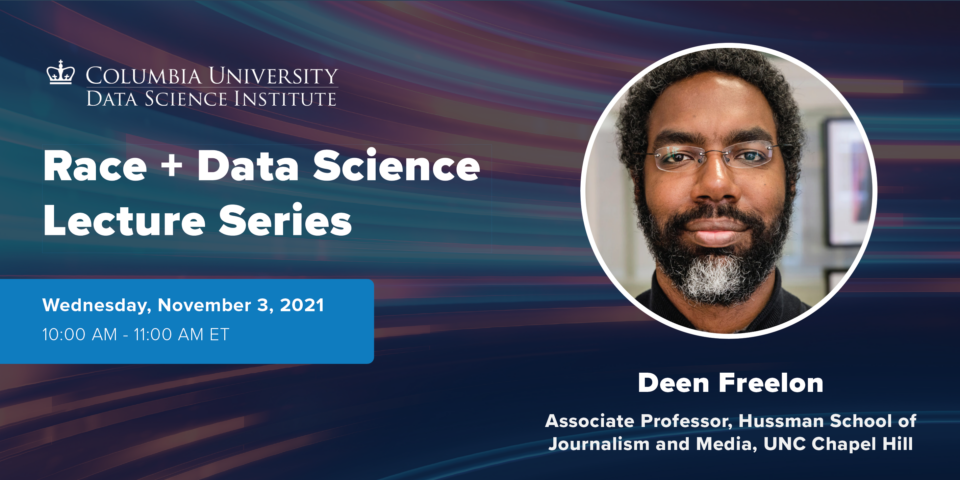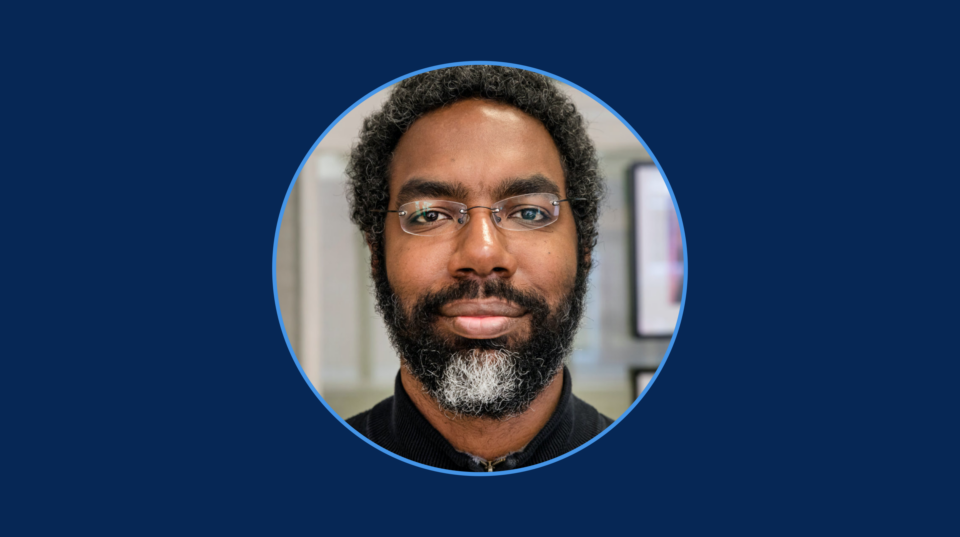Race + Data Science: Deen Freelon, UNC Chapel Hill
Wednesday, November 3, 2021
6:00 am - 7:00 am

Wednesday, November 3, 2021
6:00 am - 7:00 am


The Race + Data Science Lecture Series aims to celebrate and advance research in the areas of race and data, engineering, and computational science. With this series of events, our goal is to improve how we as data scientists and data-adjacent researchers speak about race.

Deen Freelon, Associate Professor, Hussman School of Journalism and Media, UNC Chapel Hill
Wednesday, November 3 (10:00 AM – 11:00 AM ET) – Virtual
Desmond Upton Patton, Associate Director of Diversity, Equity and Inclusion, The Data Science Institute, Columbia University. Patton is also Associate Professor of Social Work; Associate Dean of Curriculum Innovation and Academic Affairs; and Courtesy Appointment in Department of Sociology, Columbia University School of Social Work.
Calls for equity across categories of race, gender, and national identity are nothing new in politics or the academy. Yet the social sciences continue to marginalize both research on and by members of historically disadvantaged identity categories. To quantify these inequities, I analyze citation patterns from ten prominent journals in the field of Communication studies between 2000 and 2019. The data come from Web of Knowledge, and the analysis focuses on each author’s demographic and professional characteristics, including race, gender, country of employment, and discipline. The talk will emphasize the study’s mixed-methods approach, which combines computational analysis with traditional content analysis, and report on its key findings. This research offers both a model methodology and an empirical baseline for measuring inequities in citation practices within and between disciplines.
Bio: Deen Freelon is an associate professor at the UNC Hussman School of Journalism and Media at the University of North Carolina and a principal researcher at the Center for Information, Technology, and Public Life (CITAP). His theoretical interests address how ordinary citizens use social media and other digital communication technologies for political purposes, paying particular attention to how identity characteristics (e.g. race, gender, ideology) influence these uses. Methodologically, he is interested in how computational research techniques can be used to answer some of the most fundamental questions of communication science. Freelon has worked at the forefront of political communication and computational social science for over a decade, coauthoring some of the first communication studies to apply computational methods to social media data. Computer programming lies at the heart of his research practice, which generates novel tools (and sometimes methods) to answer questions existing approaches cannot address. He developed his first research tool, ReCal, as part of his master’s thesis, and it has since been used by tens of thousands of researchers worldwide. His scholarship has been financially supported by grantmakers including the U.S. Institute of Peace, the Spencer Foundation, the Knight Foundation, and the Hewlett Foundation; and published in top-tier journals including Nature, Science, and the Proceedings of the National Academy of Sciences. Freelon earned his Ph.D. from the University of Washington in 2012 and formerly taught at American University in Washington, D.C.
The Race + Data Science Lecture Series is supported by funding from the MacArthur Foundation and New America.